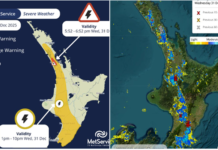[maxbutton id=”2″]
Tongans in Australia on the Seasonal Workers Programme are continuing to work during the country’s lockdown.
Tonga’s liaison officer in Australia, Sione Vaka, told Kaniva News today all Seasonal Worker Programme employees’ visas had been extended for up to 12 months.
Vaka said Tongan workers had not been charged for the extension.
He said employers were making sure employees would not be infected with the virus.

He said the Australian government had directed all employers to make sure their workers had work to do during the lockdown to help their families in Tonga.
All states were on lockdown, but the workers were exempted because they were doing essential services.
They had to be quarantined for 14 days once they arrived in a state.
The cost of their quarantine was paid by the employers, but at the same time the employers have to pay them while they were being quarantined.
The employers of various farms were allowed to share the workers and employ them if they had works available for them to do.
This was not normally allowed under the Seasonal Worker Programme.
The Australian Broadcasting Corporation announced earlier this month that Seasonal Worker Programme and Pacific Labour Scheme participants could extend their stay for up to one year.
Agriculture Minister David Littleproud said extending the visas of working holidaymakers and seasonal workers would ensure farmers had enough labour to plant and pick their crops.
“What we are saying to those visa holders is that if you’re prepared to stay in this country and help us get through this coronavirus then we’ll extend your visa,” Mr Littleproud told ABC TV’s rural affairs programmer Landline.
The Minister said the extensions would be for people working in agriculture, health and aged care.
He said extending seasonal workers’ visas would ensure farmers had enough labour to plant and pick their crops.
New Zealand
Meanwhile, in New Zealand, Recognised Seasonal Employer workers are entitled to government funding, equating to NZ$585.50 per worker per week, if they cannot work during the lockdown because their employer’s business is not operating or the employer cannot afford to pay them due to reduced business activity.
RSE workers required to self-isolate while in New Zealand, due to illness or close contact with a confirmed COVID-19 case, they are also eligible for the government’s wage subsidy.
RSE employers can apply for the subsidy on behalf of their workers and provide accommodation and pastoral care facilities during the 14-day isolation period.
Workers will continue to pay their accommodation and other living costs. Under existing medical insurance, RSE workers are entitled to receive medical treatment for any presenting conditions, including COVID-19, and treatment for the virus will be covered by New Zealand’s Ministry of Health.
RSE employers are required to set strict rules for the safety of their workforce, including restricting workers’ ability to leave their worksites and prohibiting engagement with people other than those they live and work with.
Global
Meanwhile, CNN reported yesterday that farmers in the United Kingdom, Germany and Canada are using charter flights to bring in thousands of seasonal migrant workers as coronavirus shutdowns threaten the supply of migrant labour.
CNN said farm workers had been deemed essential workers by most countries. However, border closures in Europe and a virtual shutdown in global aviation had left countries that rely heavily on seasonal migrant workers facing labour shortages.
“A lack of farm workers would further stretch food supply chains that had been under huge pressure from restrictions on travel and shipping, and waves of panic buying by consumers worried about the coronavirus,” the American broadcaster said.
The main points
- Tongans in Australia on the Seasonal workers Programme are continuing to work during the country’s lockdown.
- All Seasonal Worker Programme employees’ visas have been extended for up to 12 months.
- Farm workers had been deemed essential workers by most countries.
For more information
Farmers are chartering planes to bring in workers and save their crops







